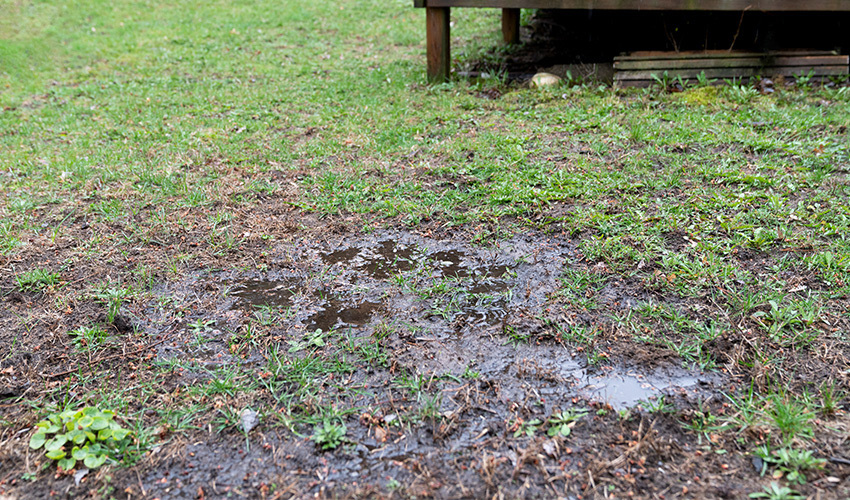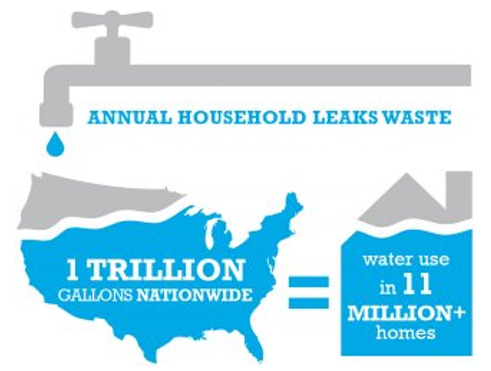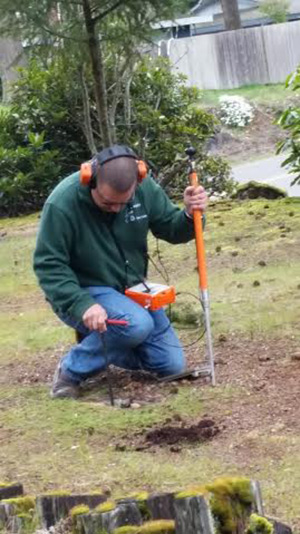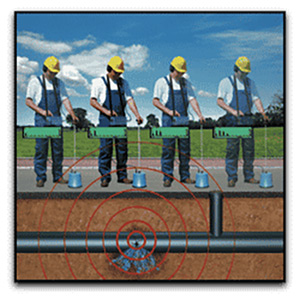Underground Leaks
In the Eastern WA and Northern ID, water leaks and small breaks happen constantly from the changes in warm and cold weather seasons. Freezing, shifting soil, corrosion, root intrusion, loss of glue adhesion, structural collapse and even rodents can cause underground piping leaks. All piping materials, including copper, steel, iron, PVC, and CPVC have a finite lifespan and will eventually leak.
If you suspect you have a leak, you may want to Find a Professional leak detection company to pinpoint the exact location and perform the repairs.
Signs you might have an underground leak include:
- Unexplained increase in water use
- A notable drop in water pressure or flow volume
- Unusually wet spots in landscaped areas or water pooling on the ground surface
- An area that is green, moldy, soft, or mossy surrounded by drier conditions
- An irrigation system that is failing to keep areas green
- An area of thick, lush vegetation or grass that is growing faster than the surrounding areas
- Cracked/lifted concrete or paved areas or the appearance of sinkholes
Check your in-ground irrigation system, each spring before use to make sure it wasn’t damaged by frost or freezing. An irrigation system that has a leak 1/32nd of an inch in diameter can waste about 6,300 gallons of water per month.
The U.S. Environmental Protection Agency estimates that one trillion gallons of water are wasted annually from household leaks. That is enough water for eleven (11) million homes. Average household leaks account for nearly 10,000 gallons of water wasted every year and ten percent of homes have leaks that waste 90 gallons or more per day.
Leak Detection
How Does a Leak Detector Work? There’s no one single way to do the job. Leak Detectors use a variety of techniques and tools, starting with visual checks and as needed acoustic listening devices, thermal scanners, video pipe cameras, and other non-invasive tools.
- Video inspection tools. One of the primary ways that a plumber finds a leak is through video inspection tools. A plumber who specializes in leak detection usually has a plumbing camera. This camera is funneled down into a relevant pipe and allows the homeowner and the plumber to obtain visuals of the plumbing system.
- Acoustic equipment. Water that is under pressure creates tiny vibrations when it escapes from a leaking pipe. Acoustic equipment detects the vibrations as sound.
- Ground microphone. If the leak is located underneath a concrete slab or behind a wall, ground microphones or listening discs can be used to find leaks.
- Acoustic amplifier. Plumbing leaks that are too quiet to hear can be amplified using this device.
- Electrical wire locator tool. This tool locates metal objects underground by transmitting high-frequency pulses into them and then listening for the sound that bounces back.
Next Steps
- Check out Leak Detection Videos
- Find a Professional to locate and repair the leak
- Explore DIY Resources






